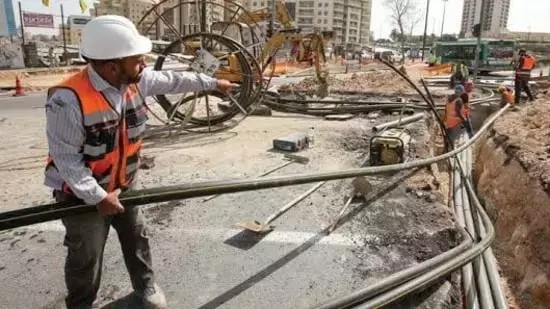



Revitalizing the Industry: How Indian Workers Are Rebuilding Israel’s Future
The influx of Indian workers into Israel's construction sector represents a pivotal shift following the disruption caused by the October 7, 2023, Hamas attack. As Palestinian laborers were barred from entering Israel, the government launched an initiative to attract foreign workers, particularly from India. This move has not only filled immediate labor gaps but also introduced new dynamics to the industry.
New Faces on Israeli Construction Sites
On a bustling construction site in central Israel, Raju Nishad, dressed in safety gear, expertly navigates scaffolding and hammers bricks into place. He is one of approximately 16,000 Indian workers who have arrived over the past year to support Israel's building projects. These workers are part of a broader strategy to mitigate labor shortages exacerbated by the conflict.
Nishad, like many of his peers, remains undeterred by the occasional air raid sirens. "There's nothing to be afraid of here," he asserts. Despite the challenges, the allure of higher earnings drives these individuals to work diligently, often making three times what they would earn in India. For Nishad, this opportunity means saving for the future and investing in his family's well-being.
India: A Natural Partner for Israel
India's economic growth and robust workforce make it an ideal partner for Israel's construction needs. Samir Khosla, chairman of Dynamic Staffing Services, highlights the strong diplomatic ties between the two nations as a key factor in this collaboration. Khosla, who has previously placed workers in over 30 countries, sees immense potential in the Israeli market.
"We had to understand the specific needs of the Israeli construction sector," Khosla explains. "But given the excellent relations between India and Israel, it felt like a natural fit." His company aims to bring up to 10,000 more Indian laborers, leveraging a vast pool of skilled workers across various trades. This strategic partnership promises long-term benefits for both countries.
Community Building Beyond Bricks and Mortar
In Tel Aviv, a group of Indian workers shares a small apartment, blending their professional lives with personal touches from home. Suresh Kumar Verma, another worker from Uttar Pradesh, emphasizes the importance of earning potential. "In a short time, one can earn more money," he notes. The financial rewards motivate him and his colleagues to work tirelessly for their families' futures.
Despite the progress, Israeli researchers caution that the current number of Indian workers falls short of pre-conflict levels. Eyal Argov of the Central Bank of Israel points out that before the Hamas attack, around 80,000 Palestinians were employed in construction, along with 26,000 foreigners. Today, the total stands at about 30,000 foreigners, leading to delays in housing supply. "This delay might lead to a future shortage," Argov warns, underscoring the need for continued recruitment efforts.
A Transformative Era for Israeli Construction
The integration of Indian workers into Israel's construction sector marks a transformative era. While challenges remain, the influx of skilled labor offers a promising solution to ongoing labor shortages. As India and Israel deepen their collaboration, the construction industry stands poised for growth, ensuring that new developments continue to rise despite past disruptions.
For workers like Raju Nishad and Suresh Kumar Verma, this journey represents more than just a job—it's an opportunity to contribute to a brighter future, both for themselves and for the communities they help build.
